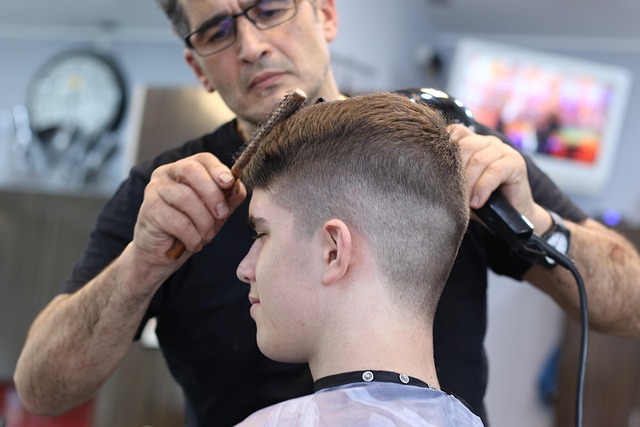Effective Solutions for Relief From Vaginal Itching
Vaginal itching is a common and often uncomfortable issue that many women face at some point in their lives. This persistent discomfort can be caused by various factors, ranging from simple irritants to more complex medical conditions. Understanding the root causes and exploring effective remedies is crucial for finding relief and maintaining optimal vaginal health.

Vaginal itching is a widespread symptom that many women experience at some point in their lives. This uncomfortable sensation can range from mildly annoying to severely distressing, impacting quality of life and causing emotional distress. While occasional itching might be temporary, persistent or recurrent symptoms warrant attention. Understanding the root causes of vaginal itching and exploring various relief methods can help women address this common yet often undiscussed health concern effectively and restore comfort to this sensitive area.
What Are the Common Causes of Vaginal Itching?
Vaginal itching can stem from numerous underlying conditions, with yeast infections being among the most prevalent culprits. Candida albicans, a naturally occurring fungus in the vagina, can overgrow and cause intense itching, unusual discharge, and discomfort. Bacterial vaginosis, another common condition, occurs when the balance of bacteria in the vagina is disrupted, leading to itching alongside a fishy odor and grayish discharge.
Sexually transmitted infections (STIs) such as trichomoniasis, genital herpes, and chlamydia may also cause vaginal itching, often accompanied by other symptoms like unusual discharge, pain during urination, or sores. Allergic reactions to products like soaps, detergents, feminine hygiene products, or condoms can trigger irritation and itching in sensitive individuals.
Hormonal changes during menopause, pregnancy, or throughout the menstrual cycle can affect vaginal pH and moisture levels, potentially leading to dryness and itching. Skin conditions such as eczema, psoriasis, or lichen sclerosus can affect the vulvar region, causing persistent itching that requires specialized treatment.
How Can You Find Relief From Vaginal Itching at Home?
Several home remedies can provide temporary relief from vaginal itching while addressing the underlying cause. Maintaining proper hygiene is crucial—wash the external genital area gently with warm water only, avoiding soaps, douches, and scented products that can disrupt the natural vaginal balance. After bathing, thoroughly pat the area dry to prevent moisture buildup.
Cold compresses applied to the vulva can help reduce inflammation and provide immediate relief from itching. A sitz bath—sitting in warm (not hot) water for 10-15 minutes—can soothe irritation, especially when combined with colloidal oatmeal or baking soda. Adding about half a cup of either substance to bathwater can help restore pH balance and reduce itching.
Wearing loose-fitting, breathable cotton underwear allows air circulation and prevents excessive moisture that can exacerbate symptoms. Avoid tight clothing, synthetic fabrics, and wet swimsuits for extended periods. During nighttime, sleeping without underwear may help the area breathe and recover.
Probiotic supplements or yogurt containing live cultures may help restore the natural balance of beneficial bacteria in the vagina, particularly helpful for recurrent yeast infections or bacterial vaginosis. However, while these home remedies can provide relief, persistent or severe symptoms require medical evaluation.
What Medical Treatments Are Available for Vaginal Itching?
When home remedies prove insufficient, medical treatments can effectively address vaginal itching based on the underlying cause. For yeast infections, antifungal medications are available in various forms including oral pills, vaginal suppositories, and creams. Prescription-strength options like fluconazole (oral) or miconazole (topical) work by eliminating the fungal overgrowth causing symptoms.
Bacterial vaginosis typically requires antibiotic treatment, such as metronidazole or clindamycin, available as oral medications or vaginal gels. These antibiotics target the harmful bacteria while allowing beneficial bacteria to repopulate the vaginal environment. For sexually transmitted infections, specific antibiotics or antiviral medications are prescribed depending on the particular infection identified through testing.
Hormonal treatments, including topical estrogen creams or rings, may be recommended for menopausal women experiencing vaginal dryness and itching due to decreased estrogen levels. These treatments help restore vaginal tissue health and natural lubrication. For allergic reactions or dermatological conditions, corticosteroid creams or ointments can reduce inflammation and itching, though these should be used only under medical supervision due to potential side effects with prolonged use.
How Can You Prevent Vaginal Itching?
Preventing vaginal itching involves maintaining good genital hygiene and making thoughtful lifestyle choices. Avoid potential irritants such as scented soaps, bubble baths, douches, scented tampons or pads, and harsh laundry detergents. Instead, wash the external genital area with warm water only, and if soap is necessary, choose mild, fragrance-free options specifically formulated for sensitive skin.
Maintain proper bathroom habits by always wiping from front to back after urination or bowel movements to prevent bacteria from the anal region from reaching the vagina. Change out of wet clothing, including swimsuits and exercise gear, promptly to minimize moisture that can foster bacterial or fungal growth.
Practice safe sex by using condoms consistently to reduce the risk of sexually transmitted infections that can cause vaginal itching. Regular gynecological check-ups allow for early detection and treatment of conditions that might cause itching, even before symptoms become noticeable or severe.
Dietary choices may also impact vaginal health. Limiting sugar intake can help prevent yeast overgrowth, while consuming probiotic-rich foods supports healthy vaginal flora. Staying well-hydrated and maintaining overall health through regular exercise and stress management also contributes to vaginal wellness.
What Over-the-Counter Products Are Effective for Vaginal Itching Relief?
Various over-the-counter products can provide relief from vaginal itching, though their effectiveness depends on the underlying cause. Antifungal creams, ointments, and suppositories containing clotrimazole, miconazole, or tioconazole are readily available for treating yeast infections. These medications typically require application for one to seven days, depending on the specific product and formulation strength.
| Product Type | Common Brands | Treatment Duration | Best For |
|---|---|---|---|
| Antifungal Creams | Monistat, Canesten | 1-7 days | Yeast infections |
| Vaginal pH Balancers | RepHresh | As needed | Maintaining healthy pH |
| Soothing Washes | Summer’s Eve Sensitive Skin | Daily use | Gentle cleansing |
| Anti-Itch Creams | Vagisil | As needed | Temporary symptom relief |
| Moisturizers | Replens, K-Y | 2-3 times weekly | Vaginal dryness |
Prices, rates, or cost estimates mentioned in this article are based on the latest available information but may change over time. Independent research is advised before making financial decisions.
Vaginal pH balancers like RepHresh help maintain the optimal acidic environment that discourages the growth of harmful organisms. These products come as gels or suppositories and can be used periodically to prevent recurrent issues. Soothing washes formulated specifically for the genital area provide gentle cleansing without disrupting natural balance.
Anti-itch creams containing ingredients like hydrocortisone provide temporary relief from itching but don’t address underlying causes. These should be used sparingly and only on the external vulvar area, not inside the vagina. For menopausal women experiencing dryness-related itching, vaginal moisturizers like Replens provide ongoing relief by adhering to vaginal walls and releasing moisture consistently.
While these over-the-counter options can be effective for mild, occasional symptoms, persistent or severe itching warrants medical evaluation. Self-diagnosis can be challenging, and using the wrong product might delay appropriate treatment or worsen symptoms.
Conclusion
Vaginal itching, while common, should never be dismissed as merely an inconvenience. With causes ranging from infections to allergic reactions to hormonal changes, proper identification of the underlying issue is crucial for effective treatment. Home remedies and over-the-counter products can provide relief for mild cases, while more persistent or severe symptoms may require medical intervention. By understanding prevention strategies and recognizing when to seek professional help, women can effectively manage this uncomfortable symptom and maintain optimal vaginal health.
This article is for informational purposes only and should not be considered medical advice. Please consult a qualified healthcare professional for personalized guidance and treatment.




